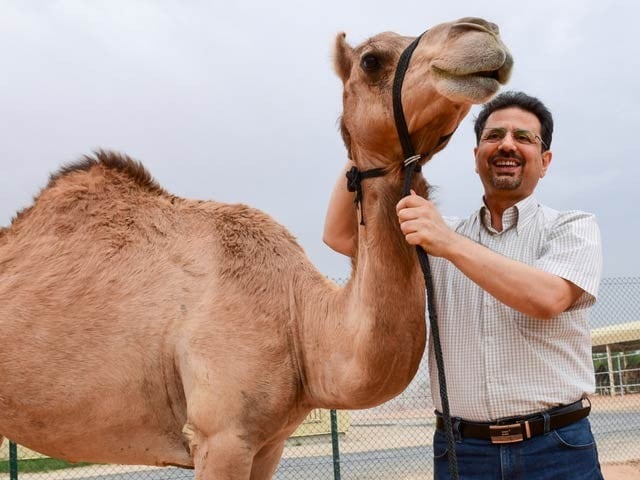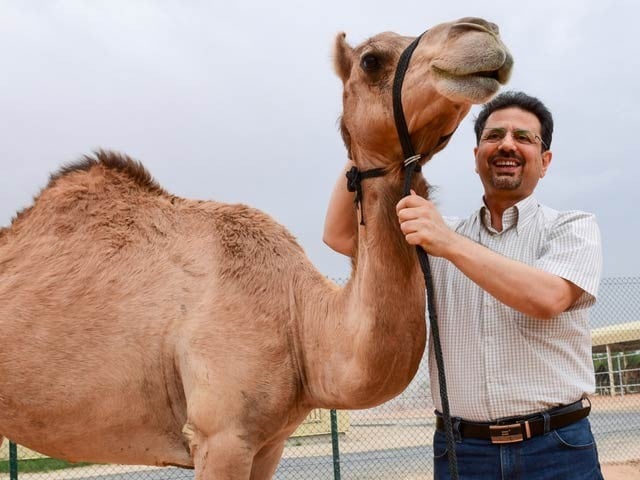
The cloning of camels is going on in Dubai, while the cost of cloning a camel can be up to Rs. Nisar Ahmad Anjaz is prominent in the picture with a camel. Photo: Gulf News
Dubai: Another business is currently booming in Dubai in which wealthy sheikhs are getting their beloved camels cloned, but this prescription costs at least $50,000 or 13.33 million Pakistani rupees.
Dr. Nisar Ahmad Wani established the Reproductive Biotechnology Center in Dubai where he gave birth to the first cloned camel, Anjaz, which means ‘success’, in 2009. In addition, several camel calves are now being cloned annually.
Apart from camels, the center also clones cows, oxen and sheep, meaning that these animals are genetically identical to their original animals. Nisar Ahmed, on the other hand, wants to save the Baktarin camel, which is becoming increasingly rare in the Arab world, by cloning it.
Dubai’s super rich want to clone their camels that have won huge prizes in beauty pageants. This is because camel beauty contests in the Arab world offer very expensive prizes, and thousands of dollars are not a big deal for the cloning and grooming of prize-winning camels.
Although Nisar Ahmed did not tell the costs of cloning, but some documents have proved that this amount can be up to 40 to 50 thousand dollars. But their labs have established many camel ‘cell banks’, including cells from camel strains with genetically modified proteins.
This company wants to create camels with the help of genetic modification that can add medicinal ingredients to their milk and thus improve the quality of camel milk. Nisar Ahmad Wani and his colleagues have started research in this regard. However, Nisar Ahmed has revealed that 90% of cloning fails while only 10% are successful.
(function(d, s, id){
var js, fjs = d.getElementsByTagName(s)[0];
if (d.getElementById(id)) {return;}
js = d.createElement(s); js.id = id;
js.src = “//connect.facebook.net/en_US/sdk.js#xfbml=1&version=v2.3&appId=770767426360150”;
fjs.parentNode.insertBefore(js, fjs);
}(document, ‘script’, ‘facebook-jssdk’));
(function(d, s, id) {
var js, fjs = d.getElementsByTagName(s)[0];
if (d.getElementById(id)) return;
js = d.createElement(s); js.id = id;
js.src = “//connect.facebook.net/en_GB/sdk.js#xfbml=1&version=v2.7”;
fjs.parentNode.insertBefore(js, fjs);
}(document, ‘script’, ‘facebook-jssdk’));



